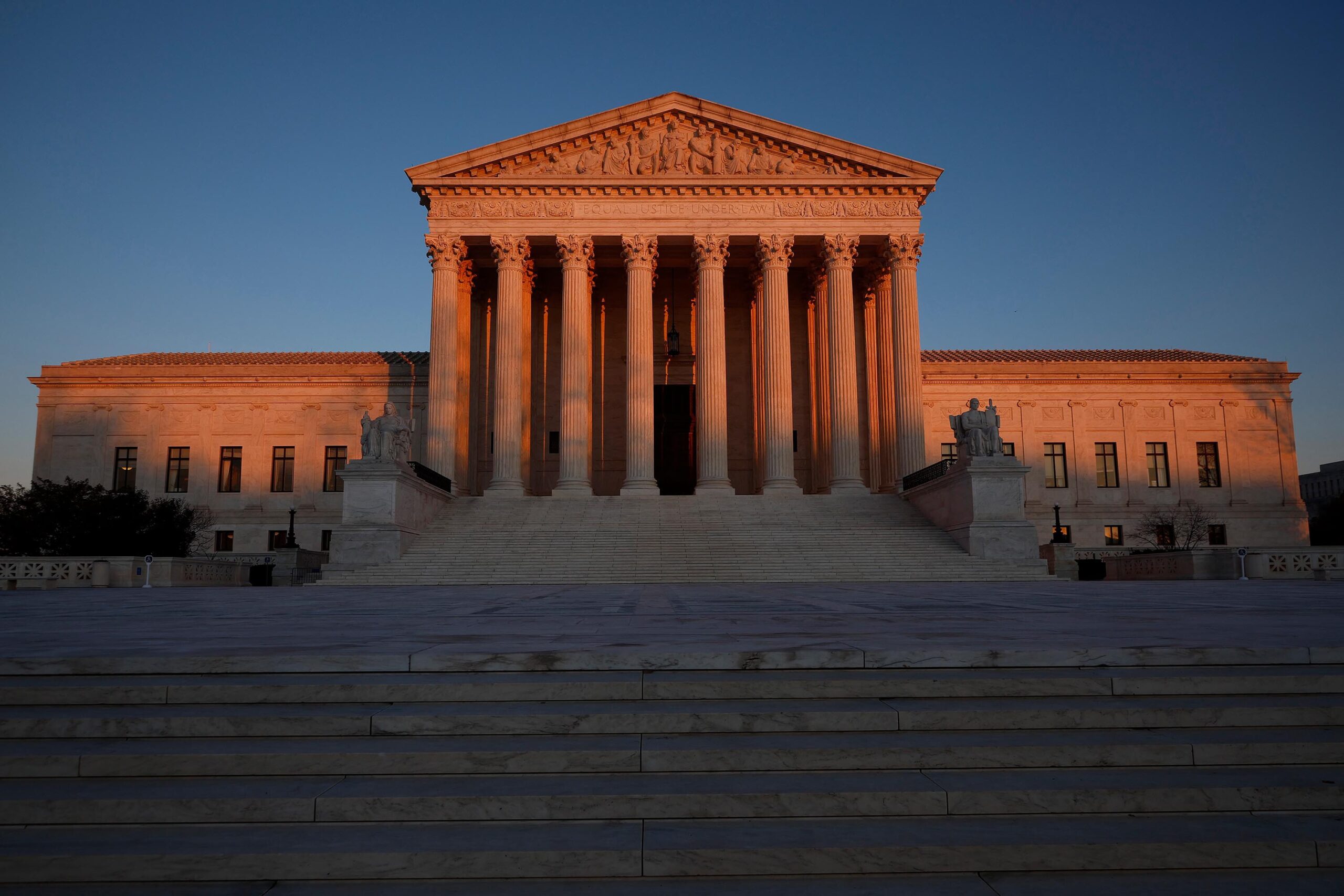
Supreme Court allows Virginia high school to move forward with 'race-neutral' admissions policy
The justices agreed with a federal appeals court that the school board can use a 'race neutral' means to accept more Black and Latino students.
On Monday, April 25, the Supreme Court paved the way for a Virginia school board to admit more Black and Latino students — and slightly fewer Asian students — to a high school that specializes in math and science.
The justices agreed with a federal appeals court that the school board can use a 'race neutral' means, which includes family income, to accept more Black and Latino students to the highly competitive Thomas Jefferson High School for Science and Technology (TJ).
Conservative Justices Clarence Thomas, Samuel A. Alito Jr., and Neil M. Gorsuch voted to block the new policy, but gave no reasoning for their dissent.
The Supreme Court on Monday cleared the way for a Virginia school board to use “race neutral” means, including family income, to admit more Black and Latino students to the highly selective Thomas Jefferson High School for Science and Technology.https://t.co/RwpCuXmGG7
— Los Angeles Times (@latimes) April 26, 2022
In the aftermath of the murder of George Floyd in 2020, the Fairfax County School Board changed its admission policy at TJ, which is often ranked as one of the best high schools in the country, but where Black and Hispanic students make up only a small portion of the student body.
Across all of Fairfax County’s public schools, about 37% of students are white, 27% are Hispanic, 20% are Asian and 10% are Black.
Under the 'race-neutral' policy, admissions administrators are not told the race, sex, or name of any applicant. They do consider “experience factors,” such as whether students are low-income, learning English, or are attending a middle school that is “historically underrepresented” at the high school.
In addition to doing away with standardized testing, the new program sets aside spots for the top 1.5% of students from each public middle school in the area, leaving open about 100 spots for everyone else, including private school applicants and students who have been home-schooled.
After the changes went into effect in 2021, the percentage of Asian-American students dropped from 73% to 54%. The Black student population grew from no more than 2% to 7 %, and the Hispanic student population grew from 3% to 11%.
Coalition for TJ, represented by the conservative Pacific Legal Foundation, sued the school board last year, arguing that the new admissions policy discriminated against Asian-American students.
RELATED CONTENT
6/7 Our statement: "@CoalitionforTJ v. @FCPSNews School Board is Brown v. Board of Education for the 21st century and, like civil rights activists of the past, we know we are on the correct side of history, and we will prevail."@adamliptak @nytimeshttps://t.co/2AXHtMvLCJ
— Coalition for TJ #WeKeepWinning! (@coalitionforTJ) April 25, 2022
They argued that even if the new plan does not expressly take race into account, the plan was nonetheless “intended to reduce the percentage of Asian-American students who enroll in TJ, with the ultimate goal of racially balancing the school according to the racial demographics of Fairfax County.”
A federal judge agreed, ruling that the board’s new policy is illegal “racial balancing.”
But in late March, that ruling was blocked by an appeals court. The judges said the policy was race-neutral, and likely a way to build a geographically and socio-economically diverse student body that better represents the school’s five Northern Virginia districts.
The Coalition for TJ came to the Supreme Court on April 8, asking the justices to reinstate the district court’s order blocking the school board from using the new plan.
With the latest rejection of the request, the case now goes back to the 4th Circuit, which is scheduled to hear oral arguments in September, but it could eventually make a return visit to the Supreme Court.
The Supreme Court on Monday cleared the way for a Virginia school board to use “race neutral” means, including family income, to admit more Black and Latino students to the highly selective Thomas Jefferson High School for Science and Technology.https://t.co/RwpCuXmGG7
— Los Angeles Times (@latimes) April 26, 2022
In a statement, Coalition for TJ wrote that the Supreme Court’s decision means the school system “can continue with its illegal, unconstitutional and anti-Asian admissions process.”
The group said that “our struggle for justice is not over [and] we are not at all dissuaded.”










LEAVE A COMMENT: